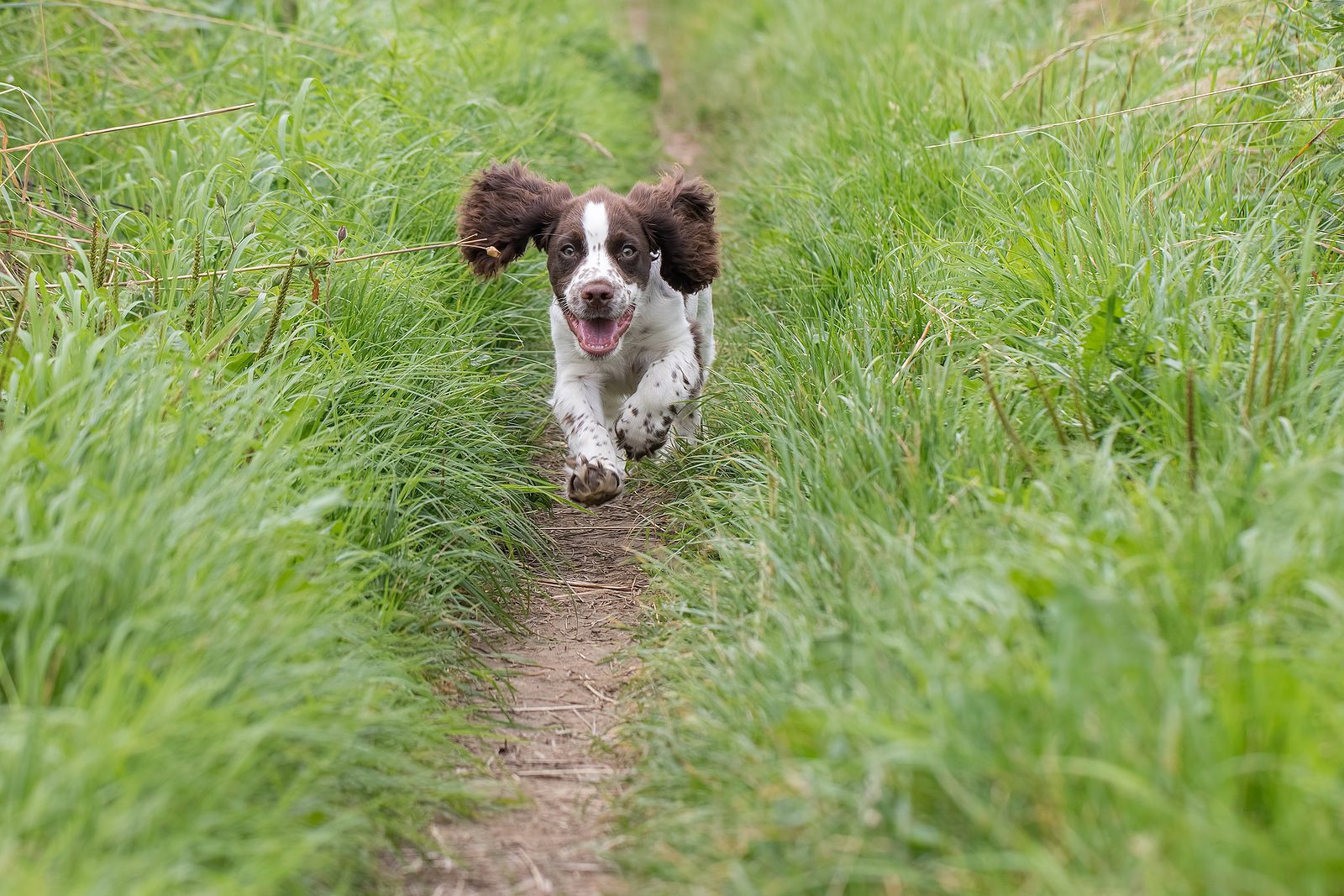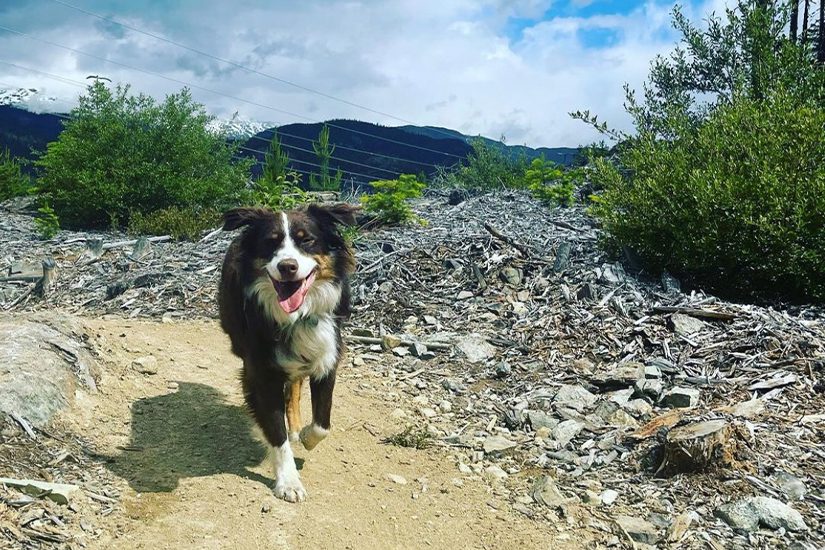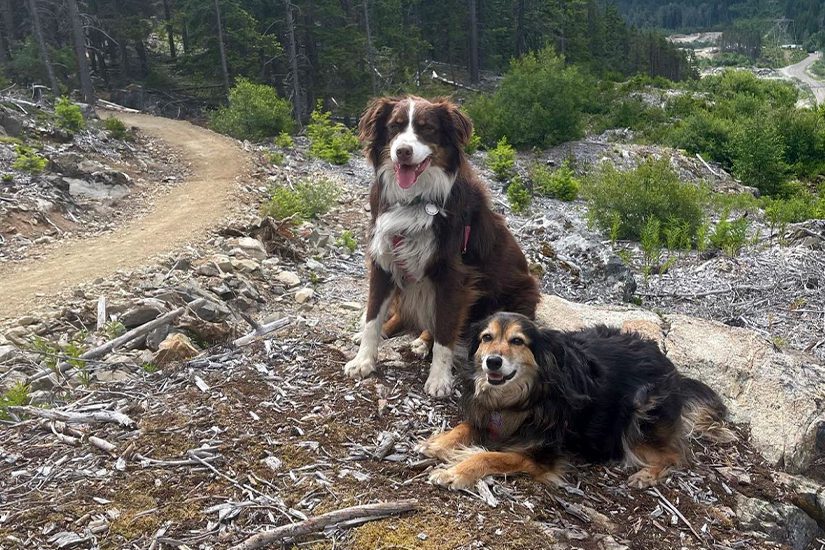Suppose you unexpectedly face a scary wildlife encounter or an aggressive dog on your off-leash walk and need to call your dog back immediately. Do you have an effective, distraction-proof recall?
An emergency recall can be life-saving and it is the one essential skill for you and your dog to master. An emergency recall is different than your regular recall. It is used only in emergency situations, when you want your dog to get back to you immediately, with no hesitation, regardless of the circumstances.
An emergency recall is the one cue every dog must know.
We spoke to trainer Saundra Clow about emergency recall, the advantages of having it and how to train your dog so they can enjoy more freedom in your outdoor adventures.

What is an emergency recall?
According to Clow, an emergency recall “is one that, like the name implies, you only use in an emergency when you really need to ensure your dog comes to you no matter what.”
Every dog guardian wants their dog to come when they call and your everyday recall should do that, but it can sometimes fail when the environment is more exciting to your dog, or they are simply having too much fun.
For this reason, an emergency recall is different because it is a unique cue. “The difference with the emergency recall is that it will be so salient that your dog will disengage from more major distractions because they heard the magical emergency recall word or sound that is different from the recall they hear daily outdoors,” explains Clow. “The novelty of this alone will help ensure your dog’s success in disengaging from the environment to come running back to you.”
What are the advantages of having an emergency recall?
Having an emergency recall is beneficial for both you and your dog. Clow explains, “Dogs that have an emergency recall can be offered more freedom,” which makes off-leash trails more enjoyable to dogs and their guardians.
“British Columbia is a beautiful province and there are so many dog-friendly off-leash trails to explore. It’s important to have an emergency recall trained with your dog before going on these adventures in case you need to use it to call your dog back from a person, another dog or wildlife,” says Clow.
 Photo by Alpine Dogs
Photo by Alpine Dogs
What makes a good emergency recall for dogs?
For Clow, for a good emergency recall, consistency is key, “Dogs learn by association so it’s important to have a consistent recall that uses the same verbal cues or sounds (like a whistle) that you say in the same order and in the same way every time you use it. This consistency will help your dog recognize that you’ve just said their recall cue and they’ll know what behaviour to offer.”
The other essential component of a good emergency recall is the rewards. Clow says, “ensure you have built up a very strong history of pairing the recall with delicious, high-value food rewards. You need to use a type of reinforcement that your dog is motivated to recall off dogs, squirrels etc.” And it is not just any food rewards. “Dried biscuit-type treats won’t cut it here. You’ll get better results with your training efforts by rewarding with boiled chicken, cheese, roast beef, etc.,” explains Clow.
How do you train an emergency recall?
Training an emergency recall requires patience, so don’t rush the process, or you could risk overusing the recall losing its novelty and efficiency.
The process has different steps. Clow says, “you first need to choose what your emergency recall word will be. You can also train your dog to a whistle as it is a sound that carries well and will be consistent for your dog.”
The next step involves preparing in advance those high-value food rewards. Clow explains, “Once you’ve decided on your recall cue word or whistle, then you need to pair that with delicious, high-value food rewards. To do this, have a container of food prepared ahead of time in the fridge. You’ll need a big handful – think a 1/4 to 1/2 cup of chicken, cheese etc., depending on the size of your dog.”
After you have everything ready, it is time to start practising at home. Clow says, “Say your recall cue once, very clearly, when your dog is in the room with you. Then encourage your dog to run to the fridge with you, where you’ll give them the food. Feed your dog the high-value treats, all while praising them. Then repeat daily, only once a day, for a minimum of 7 days in the house only. Be sure to vary the room you are in, the time of day you say their emergency recall and always have the food prepped and in the fridge, well in advance.”
Once the training at home shows results, it is time to move the training outside and start practising outdoors. Clow explains, “practice once a day outdoors, without any distractions with your dog on a long line, slowly building up to practicing your emergency recall when your dog is off-leash. It is very important to ensure your dog comes when they hear the cue the first time without hesitation.”
Remember, you need patience. “Avoid the temptation of using it outdoors too soon. My general rule is if you are not willing to bet $100 your dog will be successful, do not use your emergency recall cue,” says Clow.
See our guide to training an emergency recall on the AnimalKind site.

How can you practice the emergency recall?
Practising your emergency recall gives you the confidence that it works and that your dog knows what to do when you use it. Find the right environment to practice and do it only once per day. “Using a long line outside with minimal to no distractions is a great way to practice your emergency recall. You can work up to practicing it when your dog is off-leash as well. It’s important to practice at random to keep your emergency recall familiar for your dog, but no more than once per day. Long-term, practicing it once or twice a week is ideal. “says Clow.
All about safety
The safety of your dog is top-of-mind for you. A solid emergency recall is one thing that will help you keep them safe.
Knowing you can confidently call your dog in an emergency situation and have them immediately respond gives you peace of mind and could help with unexpected encounters. An emergency recall can be trained, but remember to be patient and use only the most delicious treats!
If you need help with training an emergency recall or want to find a dog trainer, check out animalkind.ca, where you’ll find the list of trainers the BC SPCA recommends.
Helpful Resources
Tips for walking your reactive dog

